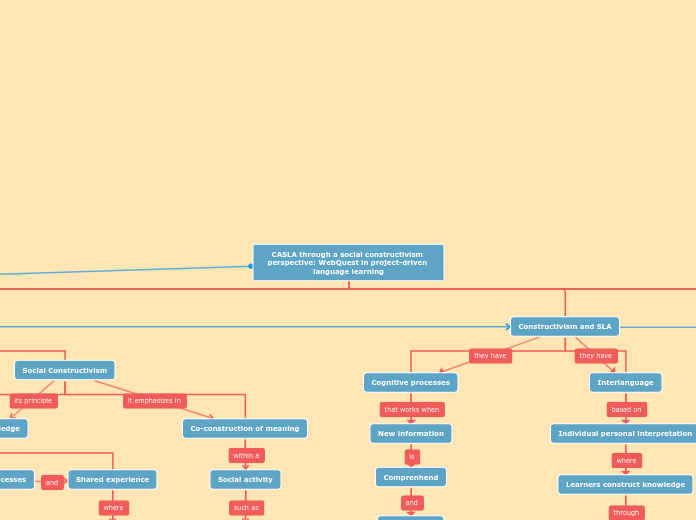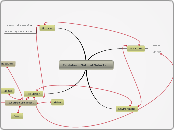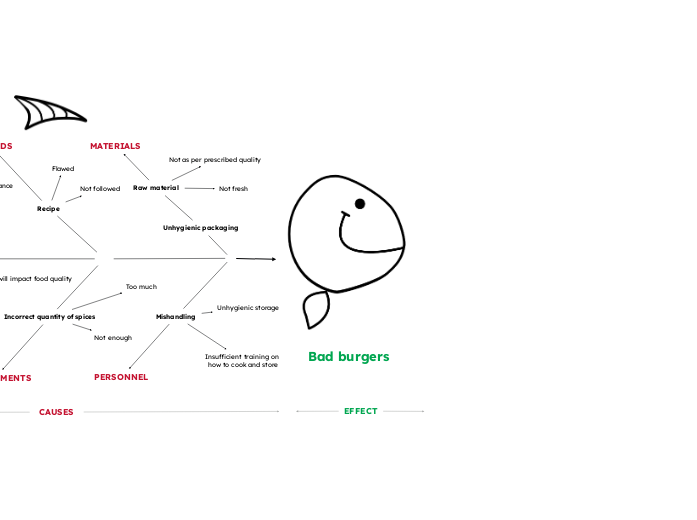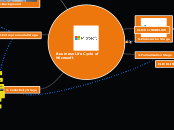CASLA through a social constructivism perspective: WebQuest in project-driven language learning
WebQuest in Project-Driven Language Learning
Ideal socio-constructivit CALL enviroment
Create a situation
Completion of tasks
Motivational element
Interaction experts online
Learners
Willing to participate
Reflect on their work
Interesting scenarios
An inquiry-oriented activity
The information
The internet
Elements
Contend in context
Problem-solving tasks
Construction of knowledge
Internet
Group work
Social Constructivism and CASLA
Characteristics of the ideal enviroment
Learner-centered
Learner's attention
Authenticity
Experince-based activities
Context-rich activities
Succesful SLA with Socio-Constructivism
Succesful SLA, CALL and Constructivist
Variety of materials
Interaction in collaborative learning
Learners engaged in a self-monitoring process
Socio-affective
Learner's willingness to communicate
Cognitive
The aware
Knowledge constructions
Learner's oppotunities
Complexity
Track their progress
Meaning in accuracy
Constructivism and SLA
Interlanguage
Individual personal interpretation
Learners construct knowledge
Learning materials
Writting
Reading
Others
Listening
Speaking
Cognitive processes
New information
Comprenhend
Gets relation
Prior knowledge
General Knowledge
Mother tongue
Social Constructivism
Co-construction of meaning
Social activity
Interaction
Other enviroments
Knowledge
Shared experience
The subject
Social contexts
Cultural elements
New meanings
Social processes
Social interaction
Constructivism Theory
Learners constructing their knowledge
Physical enviroment
Knowledge construction
humans perceive the world
Physical experiences
Social experiences
Social enviroment
Vygotsky
The individual is inseparable from the social
Cognitive Operations
Language
Social construction of knowledge
Culture
Social interactions
Piaget
Children construct their knowledge
Interactions
A mental structure
Schemata
Adapt
Organize
Enviroment
Experiences
Introduction
Constructivism
Individuals construct their knowledge
WebQuest
Project-driven language learning
CASLA
Computers Applications in Second Language Acquisition
Paradigm shift in education
the focus goes on the learner









